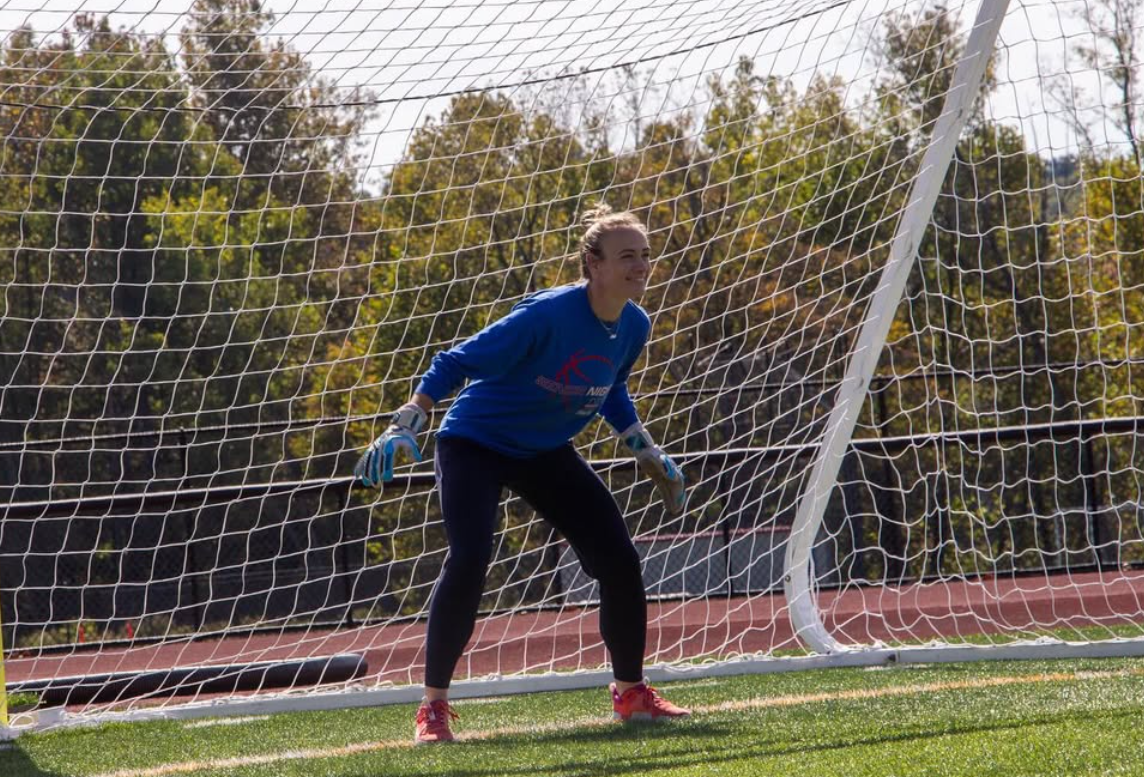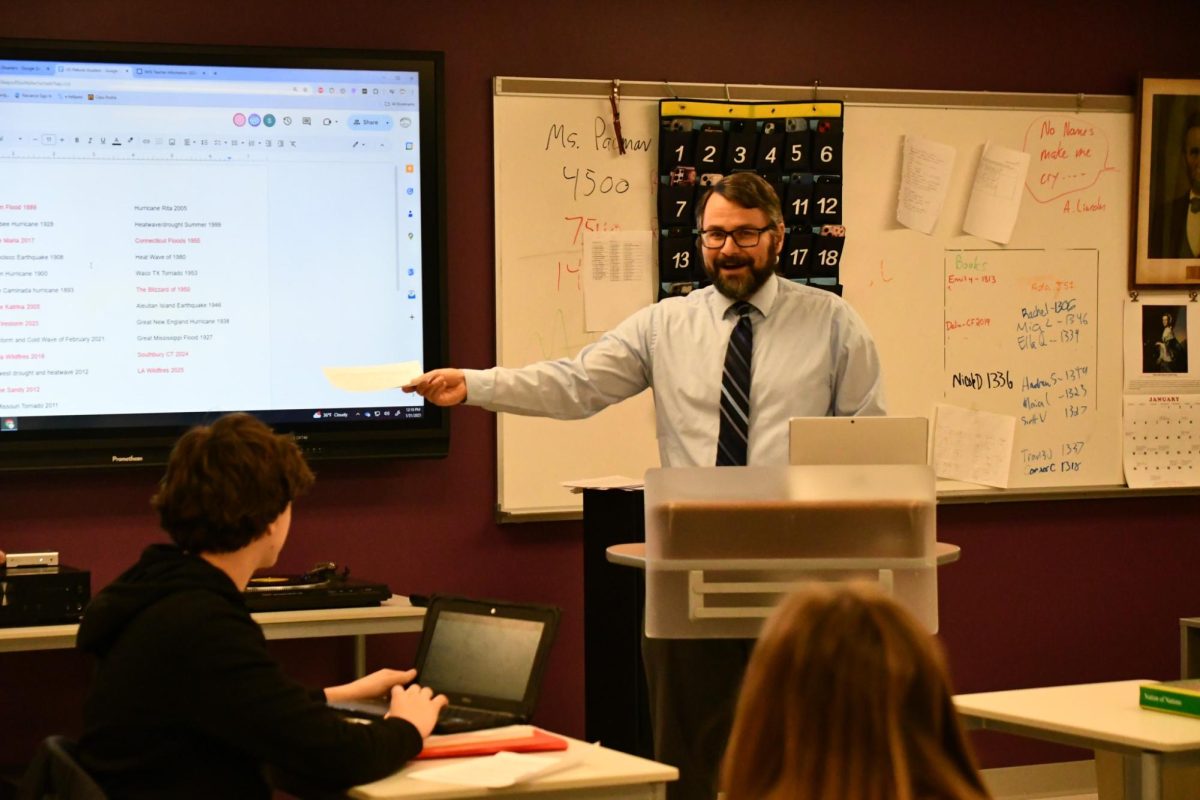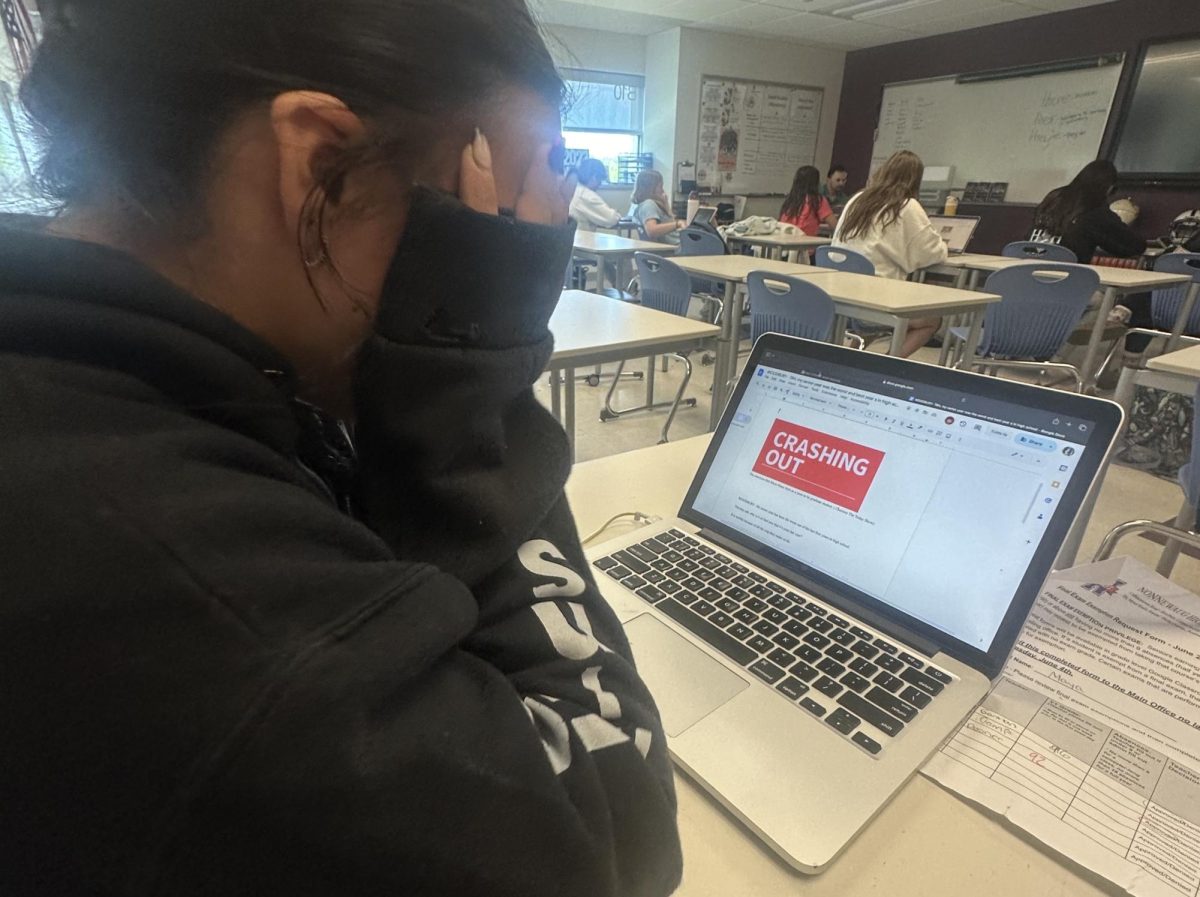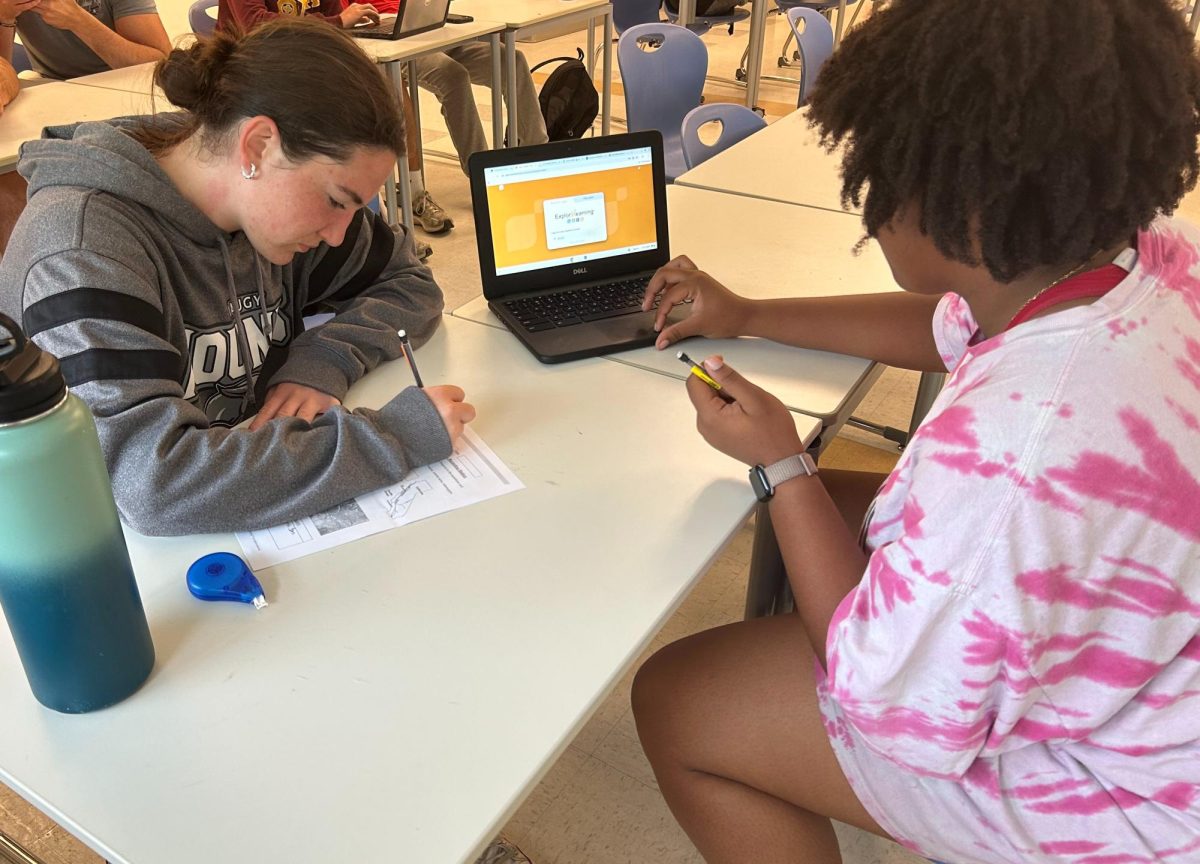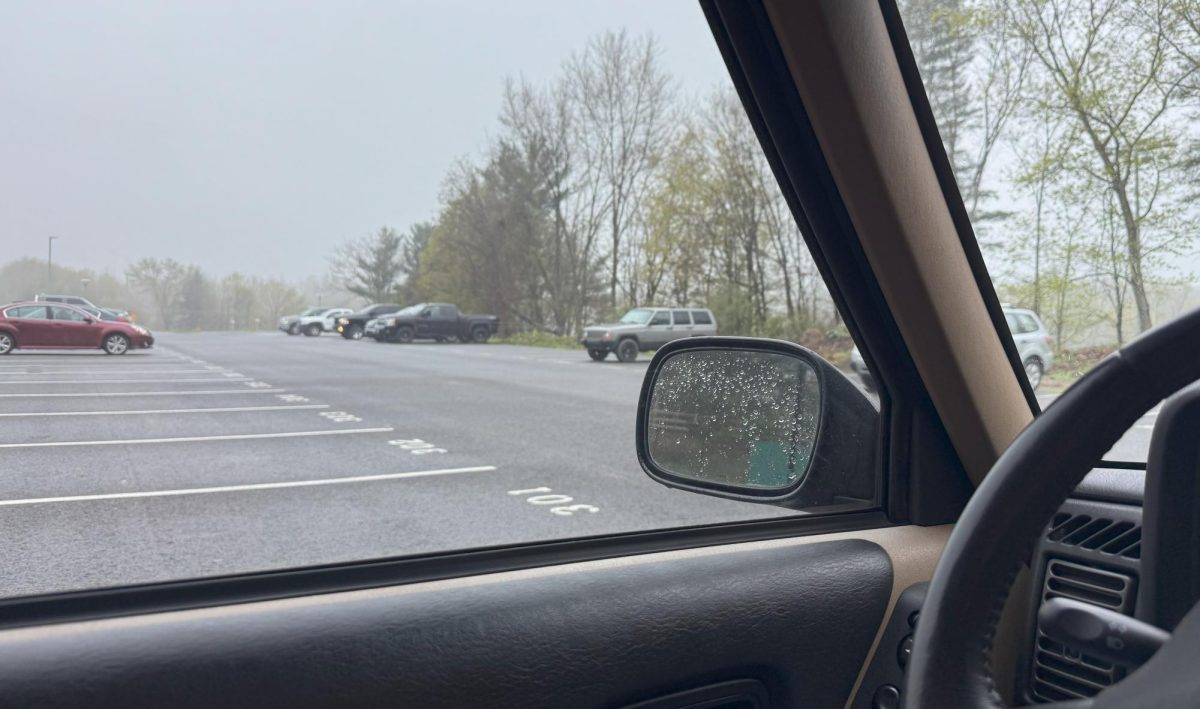WOODBURY — It’s a widely known fact that Americans are way less advanced in the foreign language area than most European countries, something that I find completely unnecessary in the light of our pricy education system.
I get it — there might be more of a need for Europeans to learn other languages and become fluent because of how close the countries are in distance. Someone in French-speaking France could get a flight to German-speaking Austria in about five hours time, while a New Yorker could be on a plane for that same amount of time and still arrive in the majorly English-speaking state of California.
According to the U.S. Census Bureau, only 20% of Americans can converse comfortably in two or more languages, compared with 56% of Europeans. This is partly due to geography, but partly due to fact that European school systems mandate all students to reach a Level B2 in English; this means, according to ETS Global, that “students can communicate easily and spontaneously in a clear and detailed manner.”
English is the official language of most of the world, but that doesn’t mean American school systems have an excuse to make learning a foreign language seem unimportant or unnecessary — it’s actually the complete opposite.
“If schools were to mandate intermediate proficiency, we would have a more globally informed and culturally literate society,” Nonnewaug world languages department chair Matthew Greaves said. “Ultimately, I think the result would be that people are more tolerant and understanding of those who may be different than they are.”
Going Abroad
Studying abroad in college is a fantastic life experience, and it’s personally something I’ve always wanted to do. Living in Connecticut all my life, and only getting a taste of somewhat different culture and warmer weather on vacations to the Carolinas, is not all that exciting compared to going somewhere across the ocean.
College might not appeal to everyone, but being on a campus on a different continent spices it up a bit. After you’re done with classes, you can visit the Eiffel Tower or spend the day walking through the streets of Venice, whatever suits your location, and your preferences.

Nonnewaug French teacher Kate Peterson had the opportunity to study French with her daughter at a university in Bordeaux and she assures it’s all she wished it would be and more.
“Studying abroad is just an eye-opener,” Peterson said. “In fact, my daughter, she and I, we decided a few years ago before Covid to go abroad and study in France over the summer. We lived in a dorm together and we had such a great time. We spent every morning at school for three solid hours learning French, and at noon you were done and we explored together. We felt like we were residents of Bordeaux: you go to the boulangerie every morning, waiting in line with all the French people for your café and pain au chocolat; you’re taught by authentic professors surrounded by all these professionals learning together; you’re part of the pulse of the town, taking trains and traveling to other towns in the area; it was truly extraordinary.”
Being immersed in another language is also a great way to learn a different language because it almost forces you to learn it and learn it fast. This, combined with already having gone through a thorough foreign language program, would speed up the learning process exponentially.
“Listening to the radio and TV in French, and everything in French 24/7, is sometimes very exhausting,” Peterson continues. “Sometimes you just want to scream, ‘Speak English!’, but then you realize when you get home that your level in that language has gone up so incredibly. It’s just fascinating, and I recommend it highly.”
Seal of Biliteracy and College Applications
Knowing another language well enough to have conversations would put you above 75% of the American population, according to a Gallup News poll.
Another study done by the Institute of Education Sciences says that only 7% of high school graduates earn the Seal of Biliteracy, proving bilingualism to an extent, so if you passed this test, you would be above 93% of the American population.
Besides this brag-worthy accomplishment, attaining the Seal of Biliteracy can have major benefits when applying for colleges, according to Nonnewaug College and Career Resource Center counselor Kathy Green.
“I think the Seal of Biliteracy can be a terrific addition to a student’s college application,” Green said. “It demonstrates a student’s fluency in multiple languages. This alone may be a priority for a college and may make that student’s application stand out. While students may pursue a high-level world language through senior year, the seal really represents accomplished language learners. Additionally, with all other facets of applications being equal, the seal would be a boost to the application on which it is included.”
Sophia Dmitriyeva, Nonnewaug alumna from the class of 2023, went through the process of getting the Seal of Biliteracy in three different languages. Despite only achieving it in one, she admits that the process was motivated by the perks behind having the Seal of Biliteracy in your back pocket.
“I took the seal of biliteracy for Russian, Japanese and French,” Dmitriyeva said. “I only ended up getting the seal officially for Japanese. I decided to do it in high school because I was already trilingual and I wanted something that could prove my fluency in the language.”
Clearly, the seal is a valuable asset to have on any application, whether it’s for college or a career — but is the process actually worth going through?
Dmitriyeva, although not in full agreement with Green, feels that it is.
“I don’t necessarily think that putting the Seal of Biliteracy helped me get into college, however I do feel that it was good proof to have [on the application] if people doubted my abilities,” Dmitriyeva said. “I also think it’s a great thing to have on my resume and that it has a positive affect on my resume. Overall I’d say doing the Seal of Biliteracy is worth it, but definitely not for more than one language because I was only able to get one seal.”
Fields of Work
Every once in a while, I think most people get the urge to redownload Duolingo — maybe in hopes of finally getting past the introduction level of whatever language they wanted to learn, or maybe just as a temporary pastime.
This might seem like something bound to be forgotten in a couple of days, but when adults who are stressing about job prospects and inflation currently in America figure out that becoming proficient in a language gives them better opportunities (ahem, higher wages) in many career fields, then it’ll become a different story.
“People who speak more than one language earn 5% to 20% more on average than those who don’t,” Workforce Essentials writes. “Because bilingual skills are in high demand, but not many have them, employers offer higher salaries to compete with other companies seeking the same bilingual employees.”
Scrambling to become bilingual through a language app or a tutor in your 20s or 30s could possibly be fun for some people — but it would be much easier and more time efficient to accomplish this during school.
Mandating Level B2 proficiency in a foreign language for all students in America before they graduate would be improving the chances of obtaining a successful future; this is the main goal of the educational system, right?
Even if it’s not, it couldn’t hurt a school’s reputation when an alum who went through the terrific language department goes off to become an LS Translator for the U.S. government.
“I think there would also be economic benefits,” Greaves said. “Americans would become more employable for international positions with the benefit of second language acquisition.”
Peterson also agrees that becoming proficient in another language would gift so many more opportunities and pave so many more paths after college.
“Being bilingual opens up lots of doors that you never realize are there,” Peterson said. “Business is something that is worldwide, not just in our country. So many of our American corporations have offices around the world, so to be bilingual, you offer your skills not just as a business person, but as a branch of connection to others. When you’re able to speak the native language of wherever you’re working, it’s just such a plus because they’re more likely to do business with you when you show that you care and are trying to connect with them on a deeper level.”
With all of these benefits, affecting your present life as well as reaching into your future, it’s hard to see why any school would be against establishing a B2 Level curriculum. This might take some time — lots of time. I’ll most likely be out of college and having my mid-life crisis by the time this idea would even be planned to start.
No matter how long it takes, in our ever-connected world, becoming proficient in another language would do nothing but better myself, yourself, and everyone around you.
This is the opinion of Chief Advocate junior editor Maia Colavito, a Nonnewaug sophomore who takes French.






